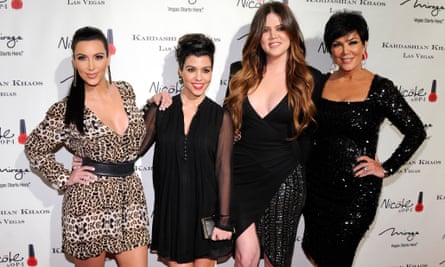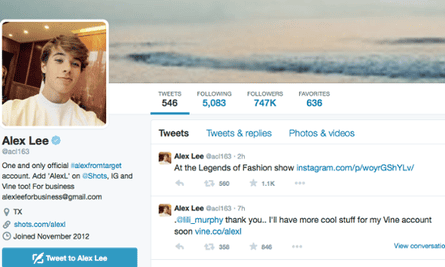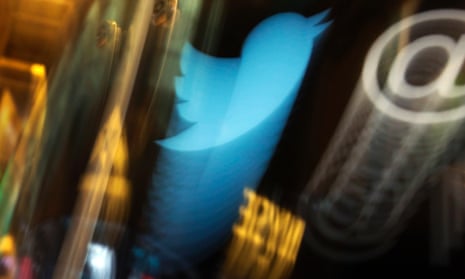I was having lunch recently with the woman who negotiates appearance fees and contracts on my behalf. I had told her that once I finish the book I’ve been writing, I want to see if I might get more of the public appearance work I’ve been doing since leaving my job two years ago as the host of a national radio show.
I enjoy this new work: it’s remunerative – especially relative to what I made in public radio – and the folks who have been hiring me seem to think I’m pretty darn good at it. So given all that, I asked for her advice.
“All of the people who would hire you for these opportunities want to know how many friends and followers you have. That’s what they want to see,” she told me. I rolled my eyes and snorted in contempt.
Even though I know she’s right.
The message today is that you are nobody if you don’t have sky-high numbers on Twitter, Facebook, Instagram, LinkedIn, and probably Snapchat and Tinder.
Oh, fer pete’s sake.
That’s what tells you that I’m qualified, talented and experienced and would do a great job for you? That’s how you measure my 20-plus years as an award-winning journalist and voice to millions of American radio listeners? As the kids like to say: are you for serious?
So I asked my agent what kind of numbers I would need. Right now, full disclosure: I have a little over 8,200 Twitter followers; almost 1,000 people have “liked” my professional Facebook page (I have more “friends” than that on my personal page); I’m attached to about 400 people on LinkedIn, where I have made exactly zero effort to connect with anyone; and I just passed 800 followers on Instagram.
How that last number says anything about my verbal skills and intellect is beyond my comprehension. Most of my actual friends and colleagues, who are not in the national media, think those tallies are pretty impressive. I could care less about the numbers because they say exactly nothing about me as a person or as a potential employee.
So – are those good? Do they make me attractive? The problem is that nobody can tell me. How many do I need? Thousands? Hundreds of thousands? What do I have to do to be as buzzworthy and employable as Justin Bieber, Kim Kardashian and Lady Gaga? Because clearly, they’re doing something that I’m not but should be. I wonder if Paper magazine would put me on the cover so I can get more Twitter followers. Note to self.

A couple years ago – when you could still do so – I unlinked myself from Klout, a company that purports to have the magic answer for who’s important on social media. I didn’t appreciate that this outfit that didn’t know me, and had no idea of my lifetime accomplishments and would never bother to ask, somehow was allowed to tally my influence. Who died and made them king of who’s hot and who’s not?
When I was a personal finance reporter, I often asked the same question of Fico – who died and made them king of credit scores? But at least there’s an aspect of your history attached to that number. Klout? It’s some mystery algorithm that employers and other people assume reflects your actual importance – or at least your importance since 2008.
You know who has a lot of Twitter followers right now? Alex from Target. He has 747,000 of them and counting. (Again, I have about 8,000.) I guess that’s because, in this digital era, virality has somehow, in and of itself, become newsworthy. By the way, Klout has only 695,000 followers on Twitter, so Alex must be more important than they are. They should get on that.
Alex also has that little blue checkmark next to his name, meaning Twitter has verified him, and that too makes him a Very Important Person. Maybe this is just sour grapes on my part, because even though I spent 20 years on the radio and have written for major national and international publications, I am not verified on any social platform. Teach me your secrets, Alex from Target.

We have all allowed ourselves to be co-opted into the idea that our social media activity reflects our abilities and, in fact, our value. Career sites exhort us to build up our social media following if we want to get a job because that’s the first place potential employers look, sometimes even before they dive into a résumé.
I understand that we don’t live in 2005 anymore. I understand that the world changes, and maybe I’m just a crotchety old woman who likes the way things used to be, when you were evaluated and rewarded for actual accomplishment and ability. But shouldn’t there be a limit to how much of our perceived hireability, value and external justification for existence comes from our interactions on platforms that ultimately exist to make money off of us?
I spend more time on some of these social media sites than others. I certainly don’t go there to gin up friends and followers. I actively dislike some of the platforms, but I pop my head in every once in a while because otherwise, I’m told, I risk irrelevance.
Yet and still, no one can tell me what it takes, how much time and effort I must expend, to be relevant. It’s all a bit ridiculous.
Sometimes I wonder what Stuart Smalley would make of this. Daily affirmations in the social media age would have to be far different, and far more specific, than the ones he delivered in the early ’90s. That was when your friends were your actual friends and anyone who followed you merited a call to 911. Today, perhaps, he would sit in front of the mirror and tell himself: “I’m good enough, I’m smart enough, and doggone it, 732 people like me on Twitter!”
“Wait, is that good enough?!”
Not by a long shot, my friend. Not by a long shot.

Comments (…)
Sign in or create your Guardian account to join the discussion